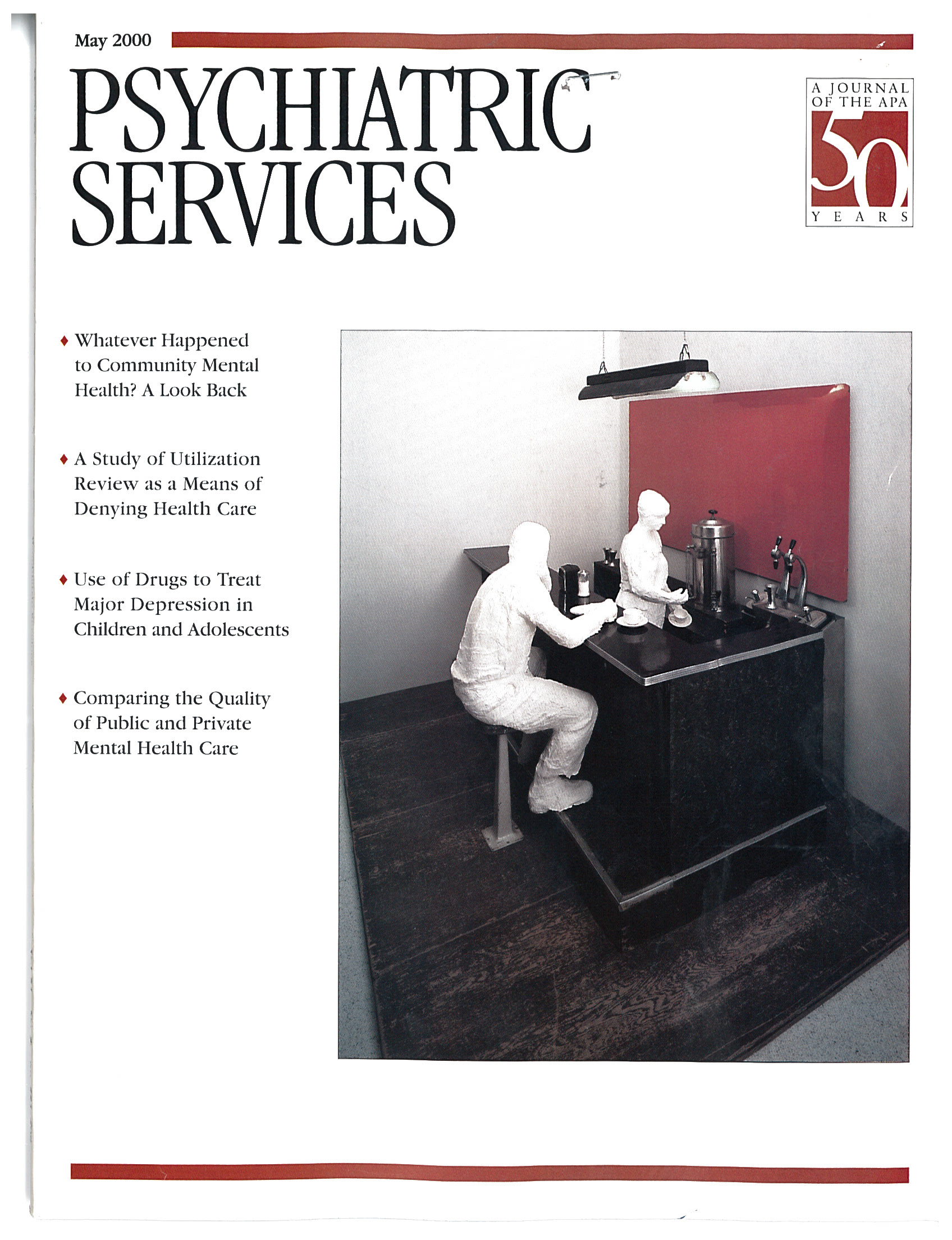To the Editor: We have encountered several mentally ill persons who developed ideas of reference about television personalities. The case described below is noteworthy for the unusual delusions about newscasters, coupled with homicidal intent, and the administrative handling of the case.
Mr. K, an inpatient at a state psychiatric facility, believed that local and national newscasters spoke directly to him and controlled his thoughts. Mr. K wished to impregnate several local female newscasters. He believed that one specific local newscaster had killed his brother and was also conspiring to kill his father. Mr. K wished to kill this newscaster in retribution for the perceived killing of his brother and to prevent the newscaster from killing his father. Previously, Mr. K approached the office of a local television station to verbalize his grievances to the newscaster. He was unarmed and peacefully left the premises when confronted by security staff members.
Clinicians contacted the potential victims, based on the reasoning that should Mr. K again approach the newscasters, their knowledge of the risk could prevent a violent act. The clinicians sent a letter outlining the nature of Mr. K's delusions and the risk factors, with an invitation to meet. Only essential information about Mr. K was disclosed.
The clinicians attempted to warn the potential victims in a manner that would not alienate Mr. K from the treatment alliance. Mr. K was fully informed of the clinicians' communications with the newscasters and agreed to the release of the information. The clinicians considered arranging a meeting between Mr. K and the newscaster at specific risk for homicide, but this option was dismissed because of the concern that personal contact with the newscaster could intensify Mr. K's delusions.
After the disclosure, several local newscasters did contact hospital administrators with questions about potential risks. The newscaster especially targeted by Mr. K was appropriately alarmed when informed of Mr. K's homicidal intent and asked for clarification. Management staff at the newscaster's station consulted the network's legal counsel and hired an independent forensic psychiatrist, who monitored the case.
In retrospect, because of the anxiety the newscasters experienced from receiving the letter, the clinicians agreed that it would have been better to have informed the newscasters of the risk issues personally.
Schizophrenic patients may incorporate television programming material into their delusions (
1), may believe that they are on television themselves (
2), or may think they are the topic of television programs. While the prevalence of ideas of reference about radio or television personalities is believed to be low, it is not described in the literature. Significant risks occur when psychotic patients develop ideas of reference and paranoid delusions about television personalities.
As a result of the
Tarasoff case (
3) and related statutes passed in many jurisdictions, clinicians have a legal duty to take reasonable steps to protect potential victims of their patients. Clinicians rarely discharge their duty to protect potential victims in the manner specified by law (
4). Many clinicians hesitate to warn potential victims, fearing that the treatment relationship will suffer. However, most clinicians who actually issued a warning reported a minimal or positive effect on the treatment relationship (
5).

